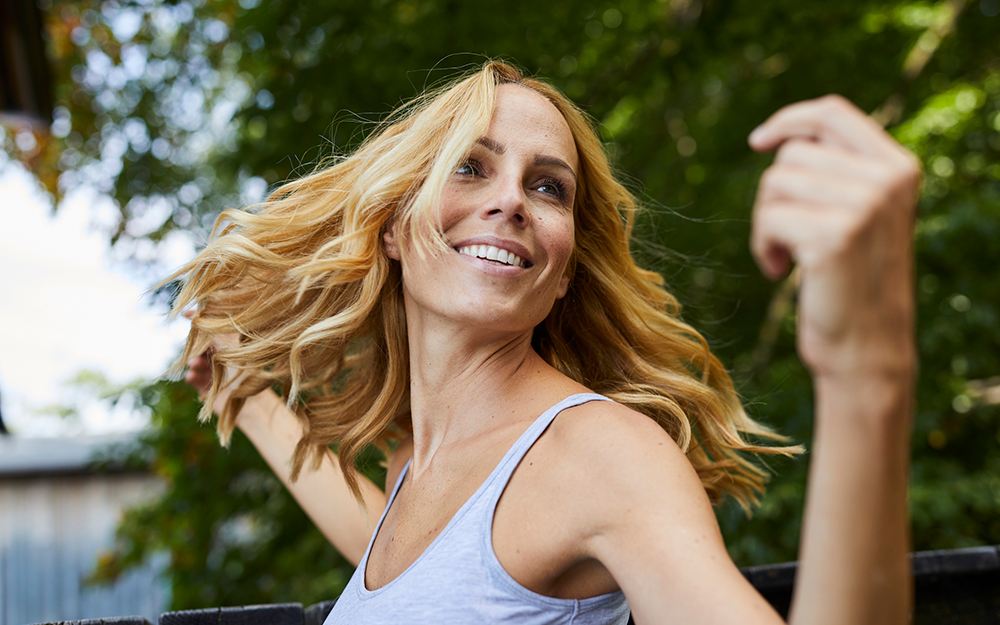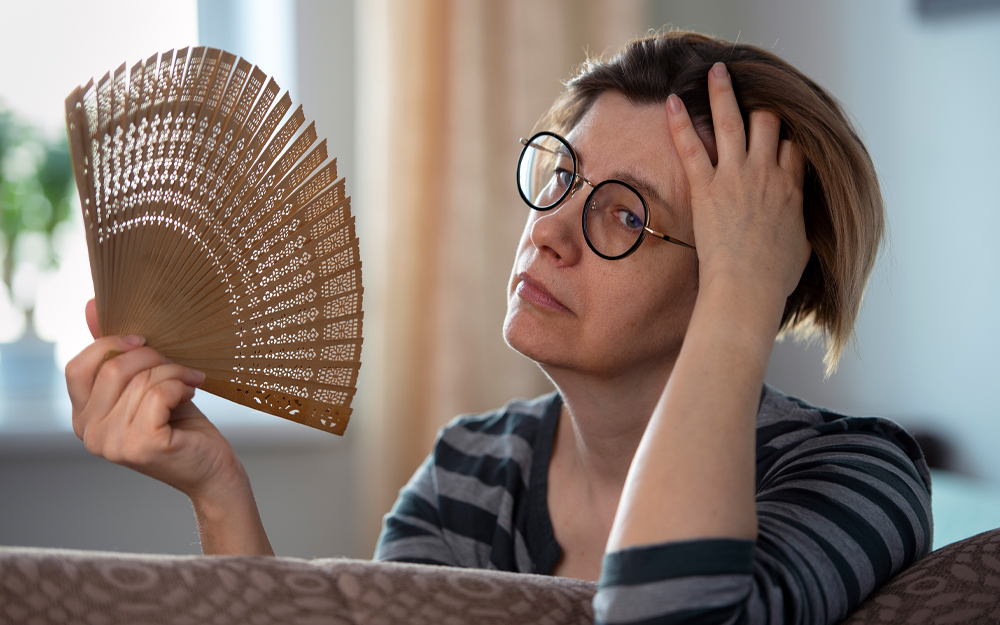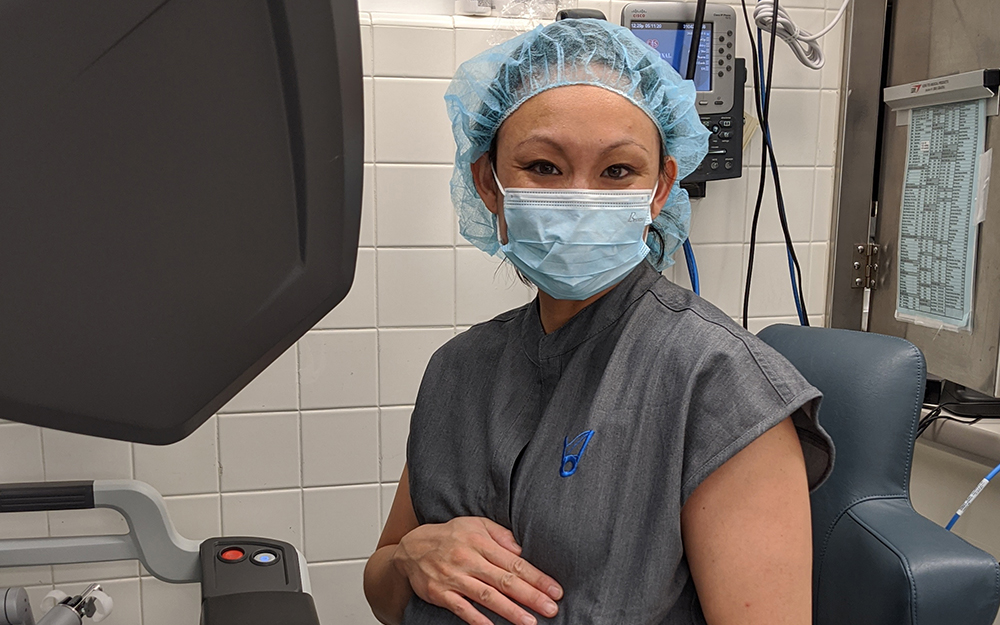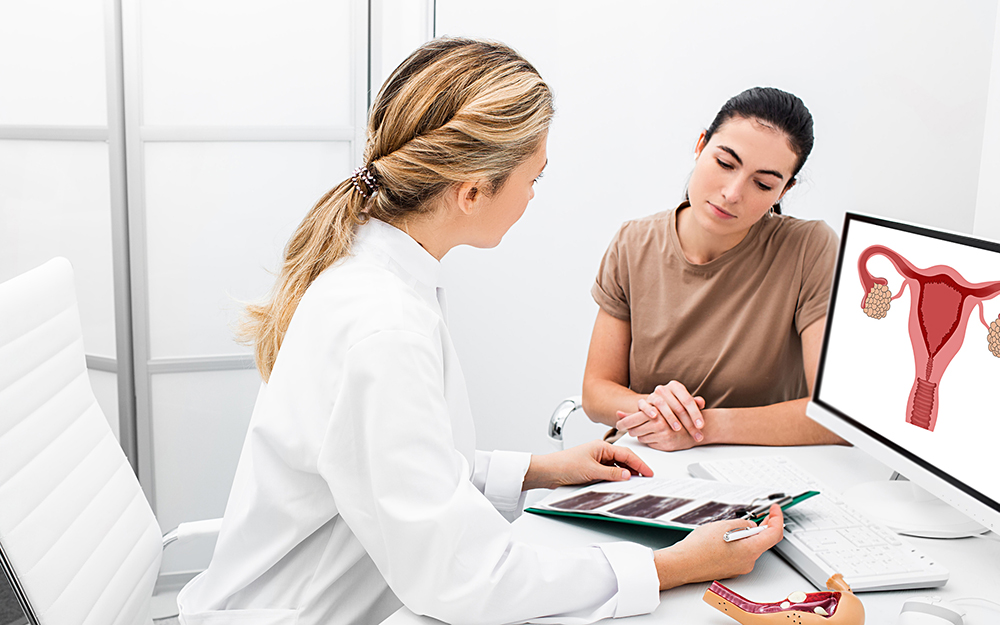Celebrating Scientists for Women's History Month
Date
March 15, 2022
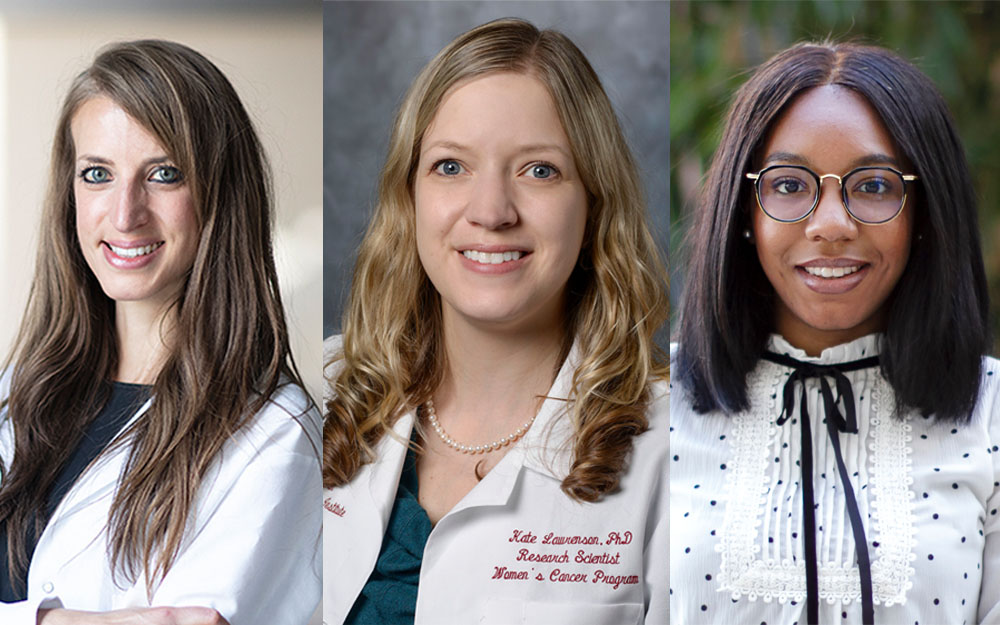
Date
March 15, 2022
Credits
Medical providers featured in this article
In Brief
{{cta-block}}
Women's History Month celebrates the vital contributions of women to American history. At Cedars-Sinai, new history is made in laboratories and through groundbreaking clinical trials every day. We talked to three exceptional female scientists about what drew them to a career in medical discovery, what changes they believe could bring more women into the field or research, and the trailblazers who inspire them every day.
"Although we have made a lot of progress in increasing the number of women in science, women are still underrepresented in leadership roles, and inequities in salaries, grant dollars and high-impact publications persist."

Alexandra Moser, PhD
Postdoctoral Scientist
Svendsen Laboratory
Board of Governors Regenerative Medicine Institute
Share a key moment in your research or a favorite discovery that was exciting and important to you.
The focus of my research, both in graduate school and during my first few years at Cedars-Sinai, has largely been on Alzheimer's disease and how genetic risk factors cause neurodegeneration. However, more recently, I have been working on using stem cells as a treatment in aging and Alzheimer's disease. While the approach seemed like a long shot at first, we have seen significant improvements in animals treated with these cells. Now we are looking at how we can translate these findings into a personalized cell therapy, or a new treatment for Alzheimer's disease, if you will. I had always hoped that my research would add to our understanding of the mechanisms of Alzheimer's disease, but I never envisioned that my work could lead to a potential treatment, so the opportunity to have this sort of an impact is really exciting.
Is there a woman in history or a female mentor that you look up to? What did they teach you?
I look up to—and owe a great deal to—my undergraduate mentor, Dr. Judith Grisel. I majored in psychology at Furman University and spent several years working in a cognitive psychology lab. During my junior year, I took her class on psychopharmacology and absolutely loved it. Understanding the biological processes underlying behavior was fascinating to me, and it was by far my favorite undergraduate class. But biology and chemistry had been difficult courses for me, and I worried that I wasn't cut out for a career in a field that relied heavily on these subjects. Dr. Grisel was the one who convinced me otherwise and pushed me to pursue what I was passionate about. While I've been lucky to have many great mentors, Dr. Grisel stands out among them. Having a female mentor at a time when I was making significant decisions about my career and future was pivotal. She understood my perspective and my doubts about my ability to have a career in science because she had once had to push through those same issues. She not only inspired me to pursue this career but also gave me a realistic view on what to expect.
What would facilitate more women choosing a career like yours? What changes do you want to see that would allow more women to enter this field?
I think having more women in leadership roles, including as heads of departments or institutions, not only would be inspirational to women considering science careers but also would drive the cultural shifts necessary to allow more women into this field. There are still subtle biases and stereotypes that need to be eliminated, and this is critical—especially in early education. Additionally, I think that telling the stories of current female scientists, including how they have overcome obstacles that others might face, could have a meaningful impact in making a career in science seem more attainable for young women.
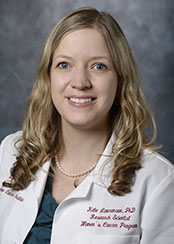
Kate Lawrenson, PhD
Associate Professor
Division of Gynecologic Oncology,
Department of Obstetrics and Gynecology
Women's Cancer Research Program at the
Samuel Oschin Cancer Institute
What most excites you about being a woman in science?
Academic science brings frustration and excitement in equal measures—to survive as an academic scientist you really have to relish the highs and not dwell for too long on the lows! I still get incredibly excited on almost a daily basis by new results, papers being accepted, or a tricky new protocol or analysis being established in the lab. Without a doubt, some of my greatest personal moments have come from a mentee telling me that I have helped them through a challenge and they've grown and progressed toward their long-term goals through our work together. "Pay it forward" is a critical facet of academic science, and my role as a female mentor to the next generation of scientific leaders is something I take very seriously.
The aspect of our team ethos that I am the proudest of is its collaborative nature. Scientists in the Lawrenson Lab team up to jointly lead outstanding projects in cancer discovery, and we also enlist the help of a number of our collaborators—so our work embodies the strong team science ethos of the laboratory. I'm a strong believer that team science is the only way forward to solve critical problems, and learning to collaborate effectively is a key skill for all trainees to gain.
What would facilitate more women choosing a career like yours? What changes do you want to see that would allow more women to enter this field?
Although we have made a lot of progress in increasing the number of women in science, women are still underrepresented in leadership roles, and inequities in salaries, grant dollars and high-impact publications persist. Unfortunately, the pandemic disproportionately impacted the science of people with caregiving responsibilities and slowed down or even reversed progress in this area. There's no easy fix, but better family leave for new parents is a good place to start. The more men that unapologetically take paternity leave, the better—but they need to be given those benefits first! We also need to expand career options for talented scientists who know they don't want to run their own lab but excel at other aspects of academic science and are valuable colleagues and collaborators. We need more grant mechanisms to support this talented group of individuals who can help elevate the science, often across multiple laboratories.

Annabel Iwuchukwu, MSc
Biomedical Technician
Drug Discovery and Development Unit
F. Widjaja Foundation Inflammatory Bowel and Immunobiology Research Institute
Is there a woman in history or a female mentor that you look up to? What did they teach you?
Dr. Alexa Canady is a woman who inspires me daily to go for anything I desire. She was the first Black woman in the U.S. to become a neurosurgeon, and she did this after having a crisis of confidence, which I believe everyone can relate to—especially women in science. We are often told we are not good enough or smart enough, but having people who push through adversity with perseverance is very inspiring.
What would facilitate more women choosing a career in biology? What changes do you want to see that would allow more women to enter this field?
As a scientist, there are many opportunities and areas of research you can get into. As someone who is working in gastroenterology after being in neuroscience, I can say that your skills are transferrable, and you should not be afraid to try different things. I think having more workshops in high schools to empower girls who are intrigued about science is a good step. However, we see that women in STEM receive fewer speaking invitations, so we need to start with these types of barriers currently affecting them. Encouraging experts in my field to mentor more women who are scared or unsure about entering the field is another good step.
Changes I would like to see include having more women in leadership roles, which in turn will inspire other women to enter this field; paying attention to gender harassment, as most establishments in STEM are male dominated; and creating more learning opportunities in our community, such as summer internships for women interested in my field.
